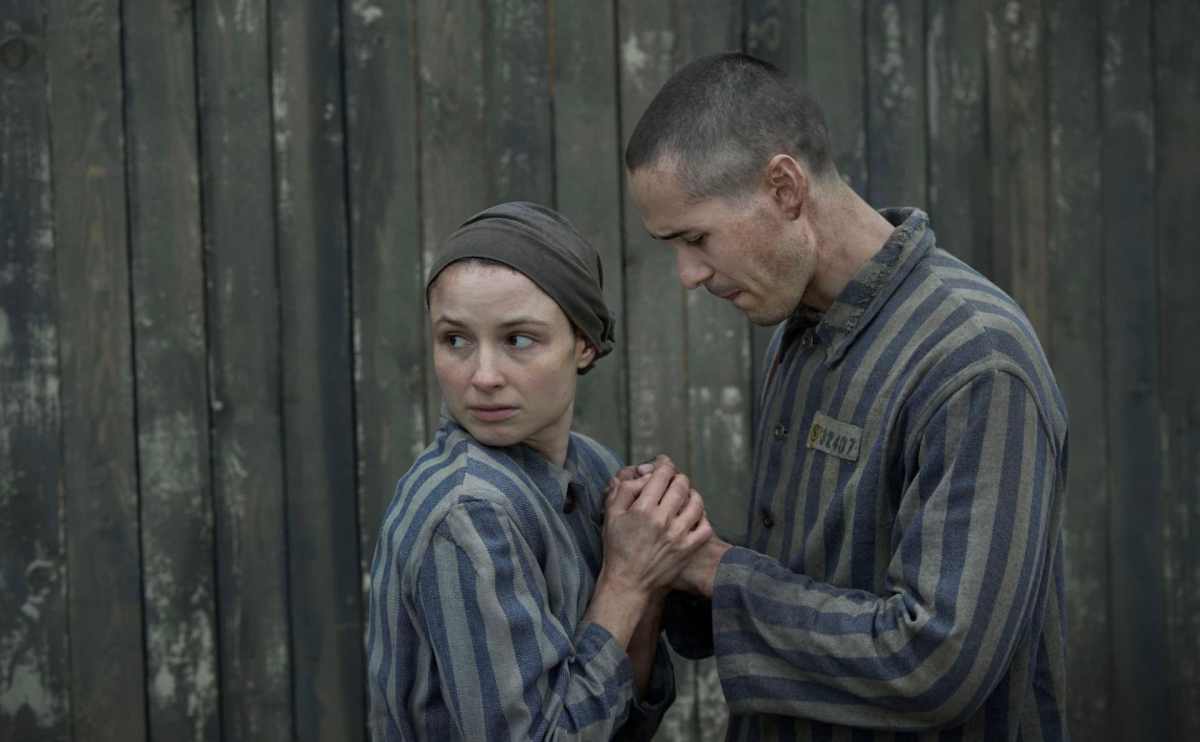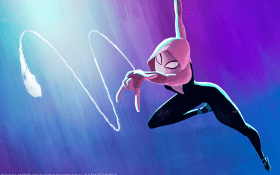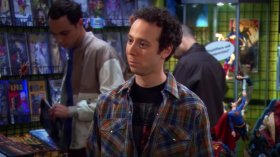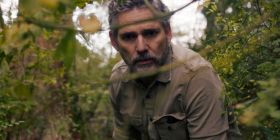There are basically two kinds of attempts to deal with the Holocaust on screen. The first tries to find ways to examine the horror of the event itself – films like The Zone of Interest, Son of Saul, even the Kenneth Branagh-starring look at the planning committee behind the Final Solution, Conspiracy.
The second approach uses the Holocaust as the backdrop for a more traditional story – survival, family, ‘don’t let your child play in a death camp’, in the case of The Boy in the Striped Pyjamas. Early in the first episode of The Tattooist of Auschwitz, we’re told that ‘this is a love story’. So at least we know what we’re in for.
In 2003, Lali Sokolov (Harvey Keitel) is living a lonely life in Melbourne. With the end drawing near, he wants to tell his story, and via a lengthy friend-of-a-friend chain of connections, suburban nurse and would-be writer Heather Morris (Melanie Lynskey) comes to his door.
Morris is the real-life author of the global best-seller this series is based on, and at their first meeting she says she’d rather listen than take notes. That’s the first hint that this series isn’t going to shy away from the accusations of inaccuracy that have dogged Morris’ book (promoted as a true story) since its publication.
Throughout Lali’s telling, we’re given multiple accounts and revisions of scenes. Sometimes he tells his story to Morris one way, then recalls the actual events afterwards; other times he manipulates his own memories to give him the closure reality denied him. Figures from his past, most notably Nazi death camp guard Stefan Baretzki (Jonas Nay) appear like ghosts to argue their side of events.
Read: The Zone of Interest: new Holocaust film powerfully lays bare the mechanisms of genocide
Back in Slovakia in 1942, a young Lali (Jonah Hauer-King) has just returned home to the family farm (Jews are no longer allowed to work in the cities) when they’re notified that all Jewish families are required to send one family member to Poland for work duties. Lali volunteers: when a school friend turned local fascist thug tells him to run, he doesn’t. Then they’re beating a man to death on the platform in front of him and it’s too late.
Read: Stan: new shows streaming May 2024
Lali is put to work upon arrival at Auschwitz, helping to expand the camp, but casual random death and senseless horror is never far away, and it’s only through a mix of luck and the kindness of others (who all end up dead) that Lali scores the job that keeps him alive, and gives the series its title.
It’s also how he meets Gita (Anna Próchniak), and while the idea of a ‘meet cute’ in Auschwitz is dubious at best, their connection during her tattoo session is immediate. It has to be; the prisoners are segregated, death is instant and everywhere, and even his protected position working for the SS isn’t going to save him if a guard decides a murder is the way to lighten his day.
The appeal of a love that could survive the horrors of Auschwitz is obvious. It’s also the weakest part of this series. Yearning moments, stolen kisses, whispered promises; it’s about the need for human connection and hope in a man-made hell of industrialised murder. It’s the horrors that linger though, Lali dwarfed by his own story.
Towards the end of the first episode, Lali is called into a gas chamber to examine a pair of corpses that seem to have identical numbers tattooed on them. If he’s made a mistake, it’s obvious he’s going to die there. When he comes up with an explanation, Stefan laughs and says, ‘You are now the only Jew who walked into this place, and also walked out.’.
When Lali says that this is a love story, he’s not wrong, and there are some touching and powerful scenes here. But it’s the evil that surrounds the lovers, and Lali’s struggles with his memories late in life, that are the strengths of this series. For such a seemingly uplifting story, it pushes the bleakness and uncertainty to the fore more often than it needs to – which makes it a stronger, more memorable series than its source material might have suggested.
The Tattooist of Auschwitz is now streaming on Stan.
Production information: Directed by Tali Shalom-Ezer, the series is executive produced by Claire Mundell through her company Synchronicity Films and is produced in association with Sky Studios, Stan Australia and All3Media International. The series is a co-production for Sky and Peacock. Australian Jacquelin Perske is Executive Producer and lead writer for The Tattooist of Auschwitz alongside episode writers Evan Placey (Associate Producer) and Gabbie Asher.





